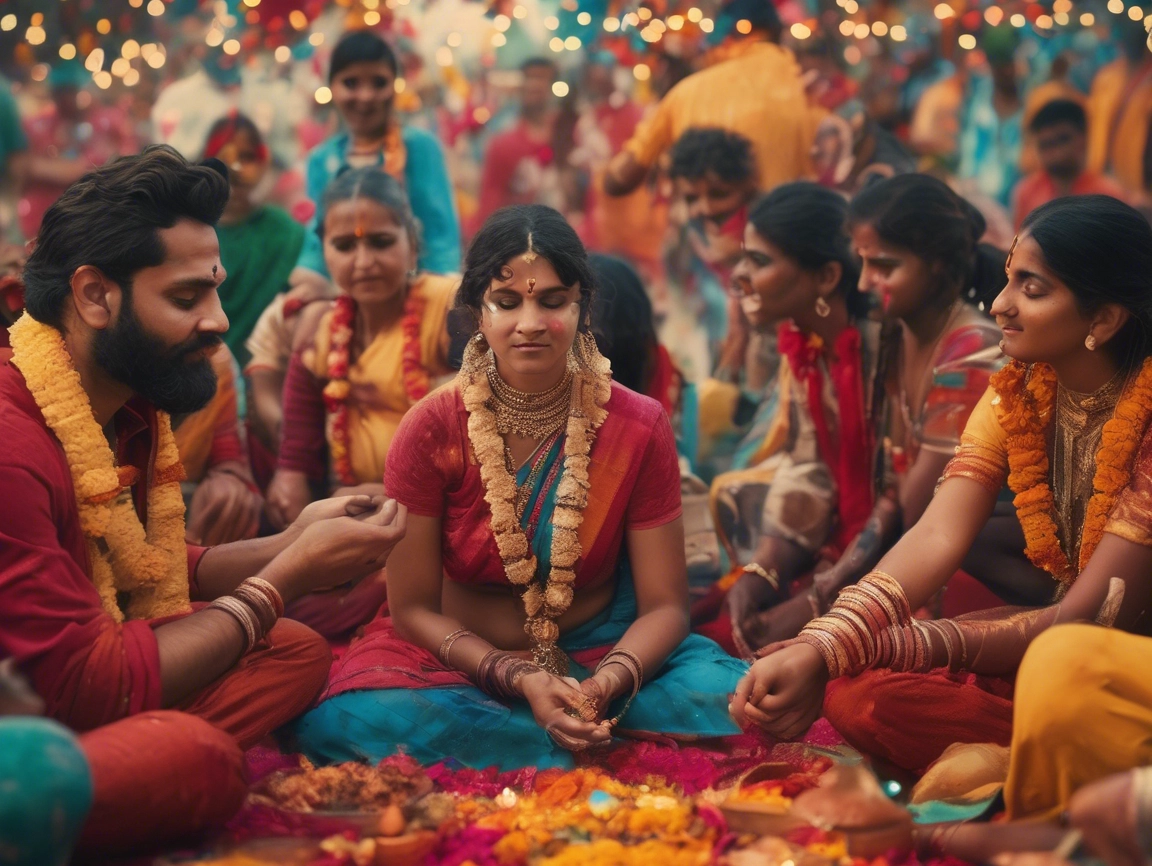
Are Our Spiritual Practices Becoming Performative?
- admin
- June 1, 2025
- Philosophy, Religion
- 0 Comments
For Show or For Soul: The Rise of Performative Spirituality in India
In the rich tapestry of Indian culture, where spirituality is deeply woven into the fabric of everyday life, there is a growing trend that raises concern: the performance of spiritual practices for social acceptance rather than personal belief or enlightenment. This shift toward performative spirituality reflects a broader social dynamic where appearances and external validations overshadow the intrinsic values of personal faith and practice.
The Nature of Performative Spirituality
Performative spirituality occurs when individuals engage in religious or spiritual activities more for public display and societal approval than for personal spiritual growth. This trend is particularly visible in the following aspects:
- Public Religious Observances: Many feel compelled to participate in visible religious activities—such as attending temple ceremonies, participating in public rituals, or posting spiritual quotes and images on social media—not out of genuine devotion but to conform to societal expectations of piety and religious identity.
- Festival Extravagance: Festivals like Diwali, Eid, and Christmas often see a competitive display of devotion through lavish decorations, extravagant gift-giving, and elaborate public celebrations. While these festivals are traditionally times for genuine spiritual reflection and community bonding, they increasingly serve as platforms for individuals to showcase their religiosity and social status.
Drivers of Performative Spirituality
Several factors contribute to the rise of performative spirituality in India:
- Social Pressure and Community Expectations: In many communities, there is a strong social expectation to display one’s religious devotion. Failing to visibly participate in religious activities can lead to social ostracism or judgment.
- Economic and Social Status: The extent and manner of one’s participation in religious functions are often seen as a marker of economic and social status. This can pressure individuals to engage in performative spirituality as a means of maintaining or enhancing their social standing.
- The Role of Social Media: Platforms like Facebook and Instagram have transformed personal spirituality into a public spectacle. Sharing images and videos of religious participation has become a way for individuals to curate a desirable social image, which can be more about garnering likes and approval than about spiritual sincerity.
Consequences of Performative Spirituality
The shift towards performative spirituality has several implications:
- Dilution of Spiritual Essence: When spiritual practices become acts of performance, their original purpose—personal growth, enlightenment, and connection to the divine—is often diluted.
- Increased Social Division: Performative spirituality can exacerbate social divisions by emphasizing and rewarding those who can afford to display their faith more extravagantly, thereby marginalizing those who cannot.
- Spiritual Disengagement: Individuals may become disenchanted with spirituality when they perceive it as hypocritical or superficial, potentially leading to a broader disengagement from genuine spiritual pursuits.
Toward Authentic Spiritual Engagement
Addressing the trend of performative spirituality requires a cultural shift toward valuing authenticity over appearance:
- Promotion of Personal Spirituality: Encouraging a personal, introspective approach to spirituality that prioritizes individual understanding and connection over public display can help shift the focus from external to internal values.
- Community Support for Diversity of Expression: Communities can play a critical role by fostering an environment where diverse forms of spiritual expression are accepted, reducing the pressure to conform to a singular model of religious observance.
- Mindful Use of Social Media: Individuals can be encouraged to use social media in ways that reflect genuine spiritual experiences rather than curated displays, fostering a more authentic online spiritual community.
Conclusion: Reclaiming the Soul of Spirituality
The challenge for modern India is to navigate the complex interplay between tradition and visibility, finding a way back to the roots of spirituality that respects personal belief over public performance. By fostering environments that prioritize genuine spiritual engagement, society can help ensure that spiritual practices enrich the soul rather than just the social feed.




